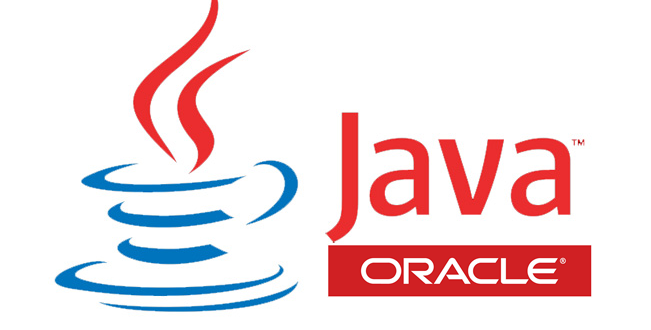
ref. https://pjh3749.tistory.com/280 해당 블로그에서 일반 java 프로젝트로 진행한 예제를 웹 프로젝트로 변경해서 수행해보겠다.
CompleteableFuture나 비동기 요청, 스레드 등에 대한 개념 이야기는 하지 않을 것이다.
전체 코드는 github에서 확인할 수 있다.
준비
domain
gradle기반의 스프링 부트 어플리케이션을 생성해준다.
domain 패키지를 만들고 하위에 Shop 클래스와 RequestType Enum을 추가해준다.
Shop
이 프로젝트는 데이터베이스에 연결하지 않을 것이다.
목표는 CompleteableFuture를 이용하는 방법을 익히는 것이기 때문에 자바 코드 내에서 모든 작업을 수행할 것이다.
따라서 늘 보였던 Entity나 Table같은 어노테이션은 사용하지 않는다.
@Getter
public class Shop {
private long id;
private String name;
private Random random;
public Shop(long id, String name){
this.id = id;
this.name = name;
random = new Random(name.charAt(0) * name.charAt(1) * name.charAt(2));
}
}RequestType
그래도 "웹 어플리케이션"의 형태를 띄고 있기 때문에 requestParam으로 사용할 Enum을 추가하였다.
public enum RequestType {
async,
sync
}Utils
utils라는 패키지를 생성하고 RandomUtil과 TimerUtil을 추가한다.
RandomUtil
랜덤으로 문자열을 생성해주는 메소드를 포함한다.
public class RandomUtil {
public static String getRandomString(int length) {
String id = "";
for (int i = 0; i < length; i++) {
double dValue = Math.random();
if (i % 2 == 0) {
id += (char) ((dValue * 26) + 65); // 대문자
continue;
}
id += (char) ((dValue * 26) + 97); // 소문자
}
return id;
}
}TimerUtil
1초간 작업을 중단하는 메소드를 포함한다.
동기식으로 수행하면 delay() 메소드를 호출하는 곳에서 매번 1초씩 딜레이가 생길 것이고, 비동기식으로 수행하면 결과를 얻는 것과 상관없이 작업이 진행될 것이다.
public class TimerUtil {
public static void delay() {
int delay = 1000;
try {
Thread.sleep(delay);
} catch (InterruptedException e) {
throw new RuntimeException(e);
}
}
}동기식 처리
Service
우선 동기식 처리를 위한 서비스 메소드를 만들것이다.
service 패키지를 만들고 하위에 ShopService 클래스를 생성한다.
ShopService
getSyncPrice 메소드는 동기식으로 price를 계산하여 그 값을 Map에 저장하여 반환하는데, 이 때 위에서 정의한 TimerUtil.delay()를 사용한다.
즉, price를 계산할 때 마다 1초씩 유휴 시간을 갖게되는 것이다.
@Service
public class ShopService {
public Map<String, Object> getSyncPrice(){
long beforeTime = System.currentTimeMillis();
List<Map<Long, Double>> prices = getPrices();
long afterTime = System.currentTimeMillis();
Map<String, Object> response = new HashMap<>();
response.put("prices", prices);
response.put("executionTime", (afterTime - beforeTime)/1000);
return response;
}
private List<Map<Long, Double>> getPrices() {
List<Map<Long, Double>> prices = new ArrayList<>();
for (int i = 0; i < 10; ++i){
Shop shop = new Shop(i, RandomUtil.getRandomString(5));
Double price = getSyncPrice(shop, RandomUtil.getRandomString(3));
prices.add(Map.of(shop.getId(), price));
}
return prices;
}
private double getSyncPrice(Shop shop, String product){
return calculatePrice(shop.getRandom(), product);
}
private double calculatePrice(Random random, String product){
TimerUtil.delay();
return random.nextDouble() * product.charAt(0) + product.charAt(1);
}
}System.currentTimeMillis()을 이용해서 price를 모두 계산하는데 걸리는 시간을 측정한다.
실제로 price를 계산하는 로직은 getPrices() 메소드이며 최종적으로 calculatePrice() 메소드에서 TimerUtil.delay()를 호출해 강제로 딜레이를 유발한다.
Controller
Controller패키지를 생성해 하위에 ShopApiController를 추가해주자.
ShopApiController
컨트롤러는 웹 어플리케이션의 구실을 갖추고 postman을 이용해 서비스를 수행해보려는 수단이므로 굳이 열심히 ^^.. 작성하지는 않을 것이다.
@Controller
public class ShopApiController {
@Autowired
private ShopService shopService;
@GetMapping("/")
public ResponseEntity<String> connectTest(){
return ResponseEntity.ok("success connecting");
}
@GetMapping("/price")
public ResponseEntity<Map> getPrice(@RequestParam("type") RequestType type) {
if (type.equals(RequestType.sync)){
return ResponseEntity.ok(shopService.getSyncPrice());
}
return null;
}
}어플리케이션을 실행하고 postman으로 "localhost:8080/"과 "localhost:8080/price?type=async"를 요청해보자.
👉 localhost:8080/
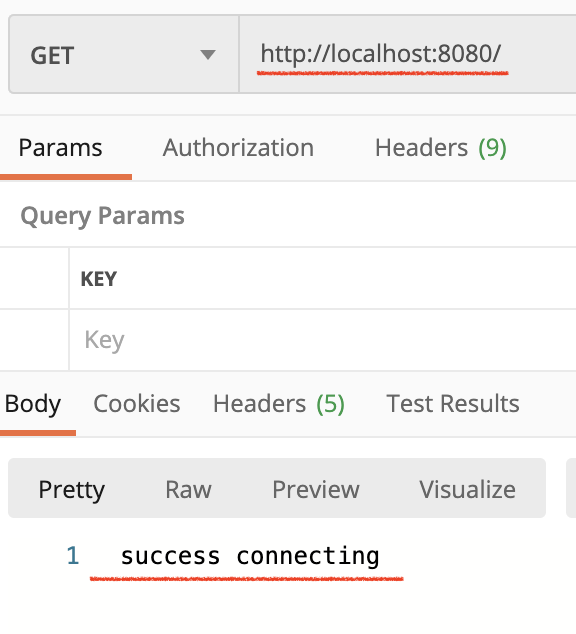
👉 localhost:8080/price
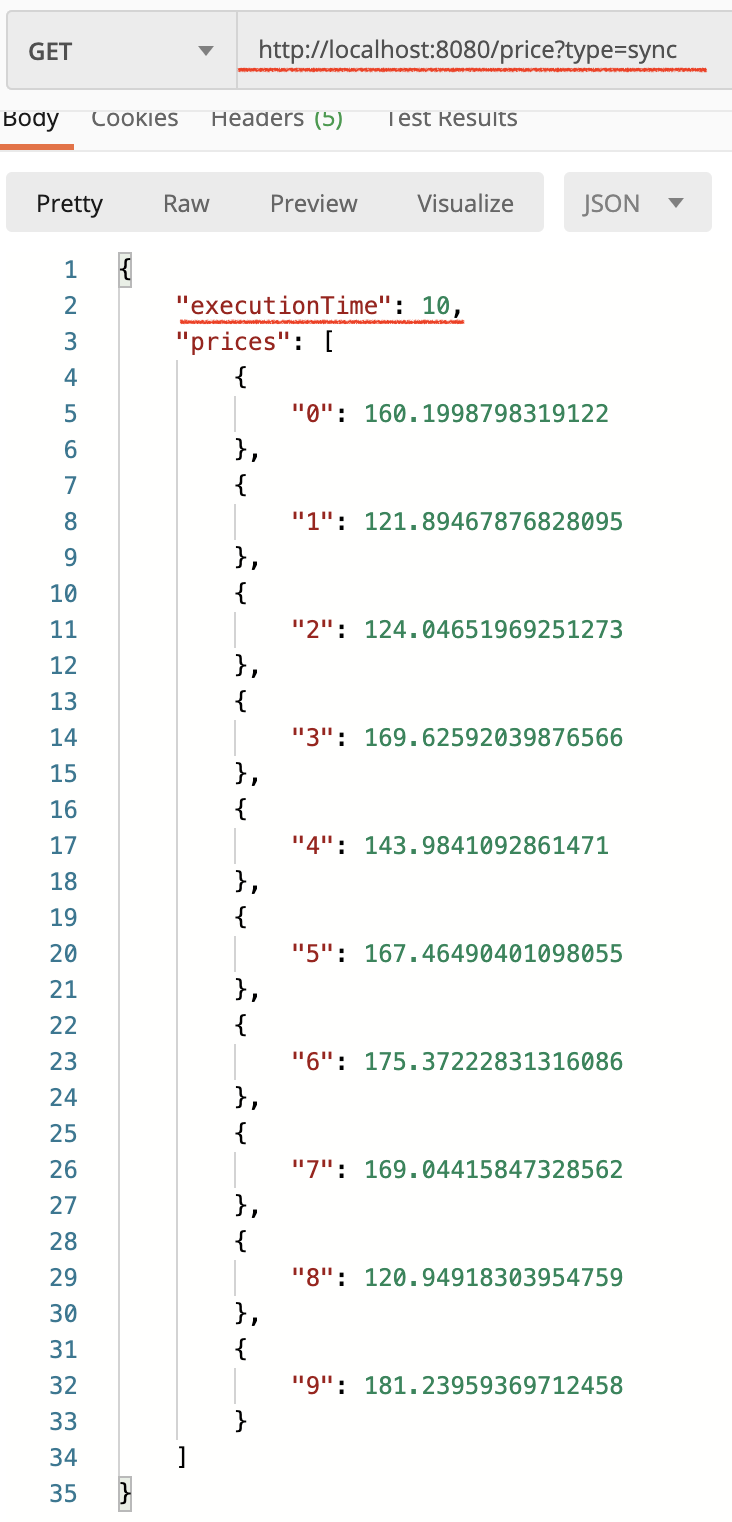
실제로 응답이 올 때 까지 몇 초 정도 시간이 걸리는 것을 느낄 것이다. 반환된 executionTime 값을 보면 10초가 걸렸음을 알 수 있다.

이는 getPrices 내의 for 문이 총 10번 실행되며 각 getSyncPrice 함수에서 1초씩의 딜레이 시간이 있기 때문이다.
비동기식 처리
CompletableFuture를 사용해 비동기 처리를 해보자.
ShopService
핵심인 CompletableFuture를 사용하고 있는 getAsyncPrice 메소드를 먼저보도록하자.
private Future<Double> getAsyncPrice(Shop shop, String product) {
CompletableFuture<Double> futurePrice = new CompletableFuture<>();
new Thread(
() -> {
double price = calculatePrice(shop.getRandom(), product);
futurePrice.complete(price);
}
).start();
return futurePrice;
}getSyncPrice 메소드에서 바로 calculatePrice를 호출해 double type의 price를 반환한 것과 다르게, getAsyncPrice는 Future<Double>를 반환하고 있다.
위 로직은 다음 순서로 작동한다.
- getAsyncPrice가 호출
- CompletableFuture<Double> 타입의
futurePrice생성 - 새로운 스레드를 생성
- 3에서 생성한 스레드가 calculatePrice 호출
- calculatePrice가 완료되면 결과값을
futurePrice에 저장 futurePrice를 반환
이렇게만 보면 그냥 동기식이랑 뭐가 다를까 싶을 수도 있다. 🤔
하지만 getAsyncPrice는 또 다른 메소드가 호출하고 있으며 호출될 때 마다 "새로운" 스레드를 만들어 job을 start() 시킨다. 즉, 각 스레드가 job을 완료할 때 까지 대기하지 않게된다.
아래의 getPriceFutures는 shop을 생성하고 getAsyncPrice를 호출하는 로직이 포함된 메소드이다.
private List<Future<Double>> getPriceFutures() {
List<Future<Double>> futures = new ArrayList<>();
for (int i = 0; i < 10; ++i) {
Shop shop = new Shop(i, RandomUtil.getRandomString(5));
futures.add(getAsyncPrice(shop, RandomUtil.getRandomString(3)));
}
return futures;
}getAsyncPrice가 총 10번 호출되므로 10개의 스레드가 병렬로 수행된다. 각 Future를 리스트에 넣은뒤 반환한다.
 최종적으로 얻는 priceFutures는 for문 내에서
최종적으로 얻는 priceFutures는 for문 내에서 get() 함수를 통해 각 Future가 가지고 있는 calculatePrice의 결과값(double price)을 반환한다.
get을 호출하기 전에 비동기적으로 수행할 다른 작업들을 수행할 수 있으며 (여기서는 또다른 CompletableFuture를 생성하는 것) 만약 get을 호출하는 순간까지 Future의 작업이 완료되지 않았다면 락을 건다.
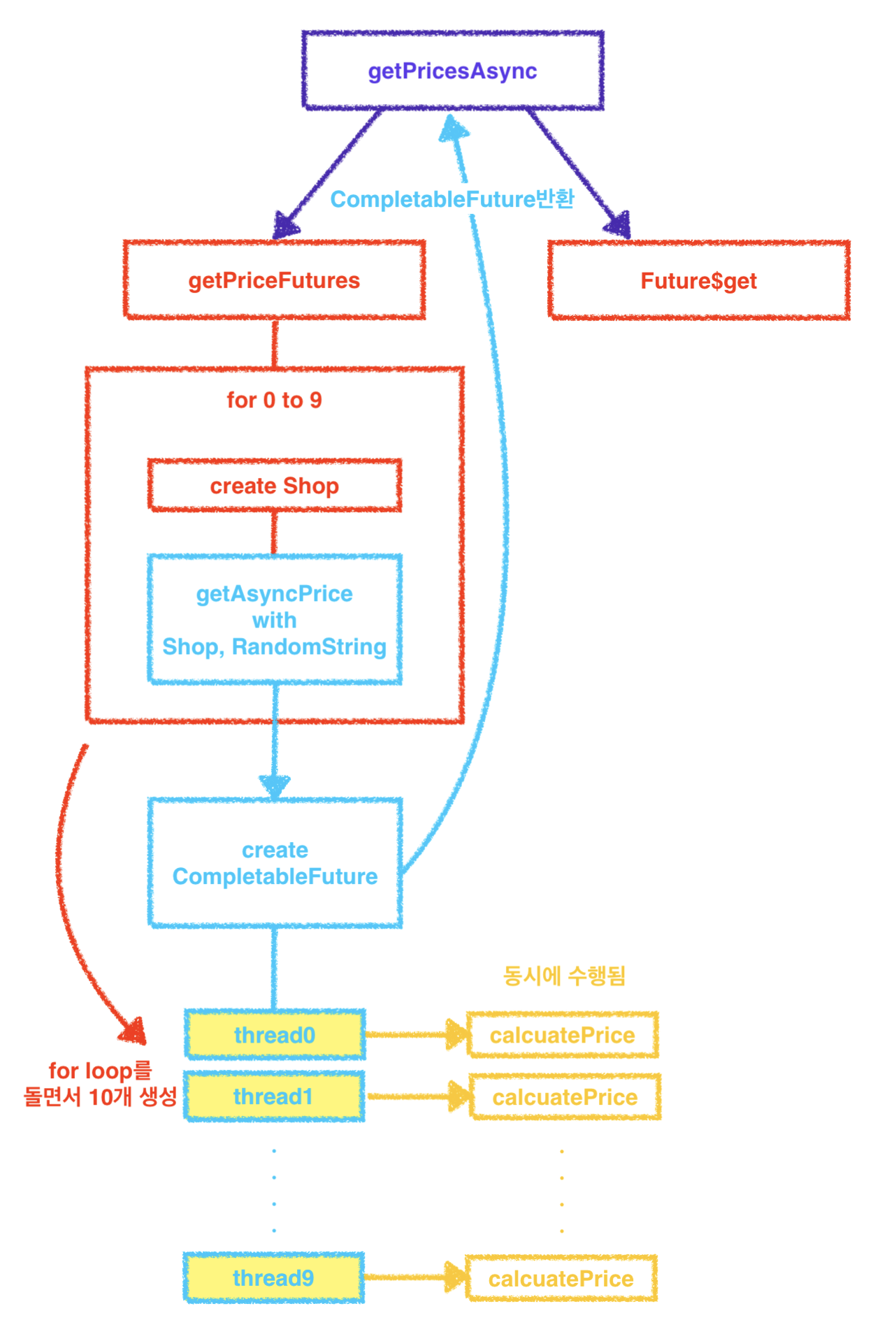
전체 ShopService 코드는 아래와 같다.
@Service
public class ShopService {
public Map<String, Object> getPrice(RequestType type) throws ExecutionException, InterruptedException {
long beforeTime = System.currentTimeMillis();
List<Map<Long, Double>> prices = type.equals(RequestType.sync) ? getPricesSync() : getPricesAsync();
long afterTime = System.currentTimeMillis();
Map<String, Object> response = new HashMap<>();
response.put("prices", prices);
response.put("executionTime", (afterTime - beforeTime) / 1000);
return response;
}
private List<Map<Long, Double>> getPricesSync() {
List<Map<Long, Double>> prices = new ArrayList<>();
for (int i = 0; i < 10; ++i) {
Shop shop = new Shop(i, RandomUtil.getRandomString(5));
Double price = getSyncPrice(shop, RandomUtil.getRandomString(3));
prices.add(Map.of(shop.getId(), price));
}
return prices;
}
private List<Map<Long, Double>> getPricesAsync() throws ExecutionException, InterruptedException {
List<Map<Long, Double>> prices = new ArrayList<>();
List<Future<Double>> priceFutures = getPriceFutures();
for (int i = 0; i < 10; ++i) {
prices.add(Map.of((long) i, priceFutures.get(i).get()));
}
return prices;
}
private List<Future<Double>> getPriceFutures() {
List<Future<Double>> futures = new ArrayList<>();
for (int i = 0; i < 10; ++i) {
Shop shop = new Shop(i, RandomUtil.getRandomString(5));
futures.add(getAsyncPrice(shop, RandomUtil.getRandomString(3)));
}
return futures;
}
private Future<Double> getAsyncPrice(Shop shop, String product) {
CompletableFuture<Double> futurePrice = new CompletableFuture<>();
new Thread(
() -> {
double price = calculatePrice(shop.getRandom(), product);
futurePrice.complete(price);
}
).start();
return futurePrice;
}
private double getSyncPrice(Shop shop, String product) {
return calculatePrice(shop.getRandom(), product);
}
private double calculatePrice(Random random, String product) {
TimerUtil.delay();
return random.nextDouble() * product.charAt(0) + product.charAt(1);
}
}ShopApiController
@GetMapping("/price")
public ResponseEntity<Map> getPrice(@RequestParam("type") RequestType type) throws ExecutionException, InterruptedException {
return ResponseEntity.ok(shopService.getPrice(type));
}서비스 측에서 RequestType을 판단해 다른 로직을 수행하기 때문에 위와같이 메소드를 변경해준다.
어플리케이션을 시작하고, localhost:8080/price?type=async로 요청을 보내보자
| 동기식 | 비동기식 |
|---|---|
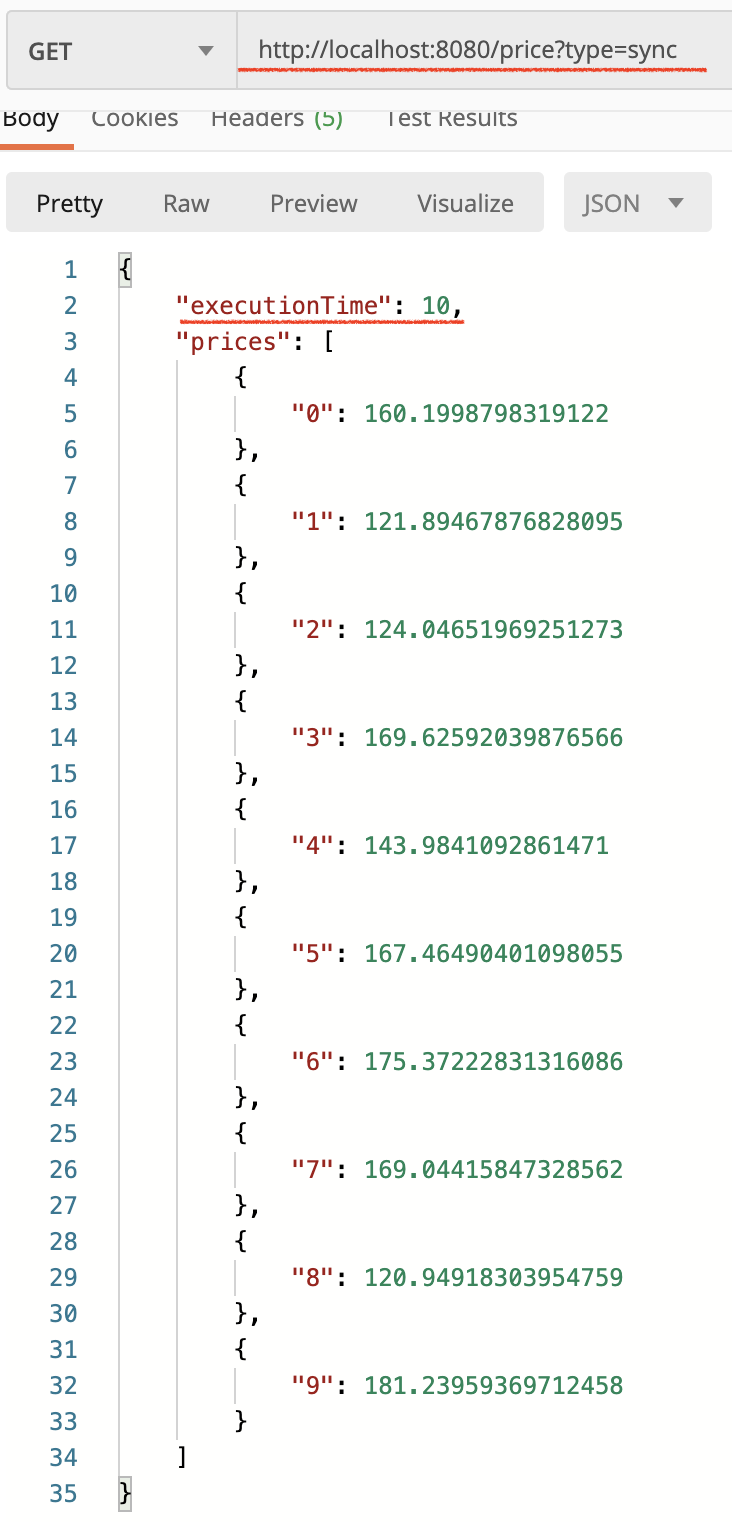 | 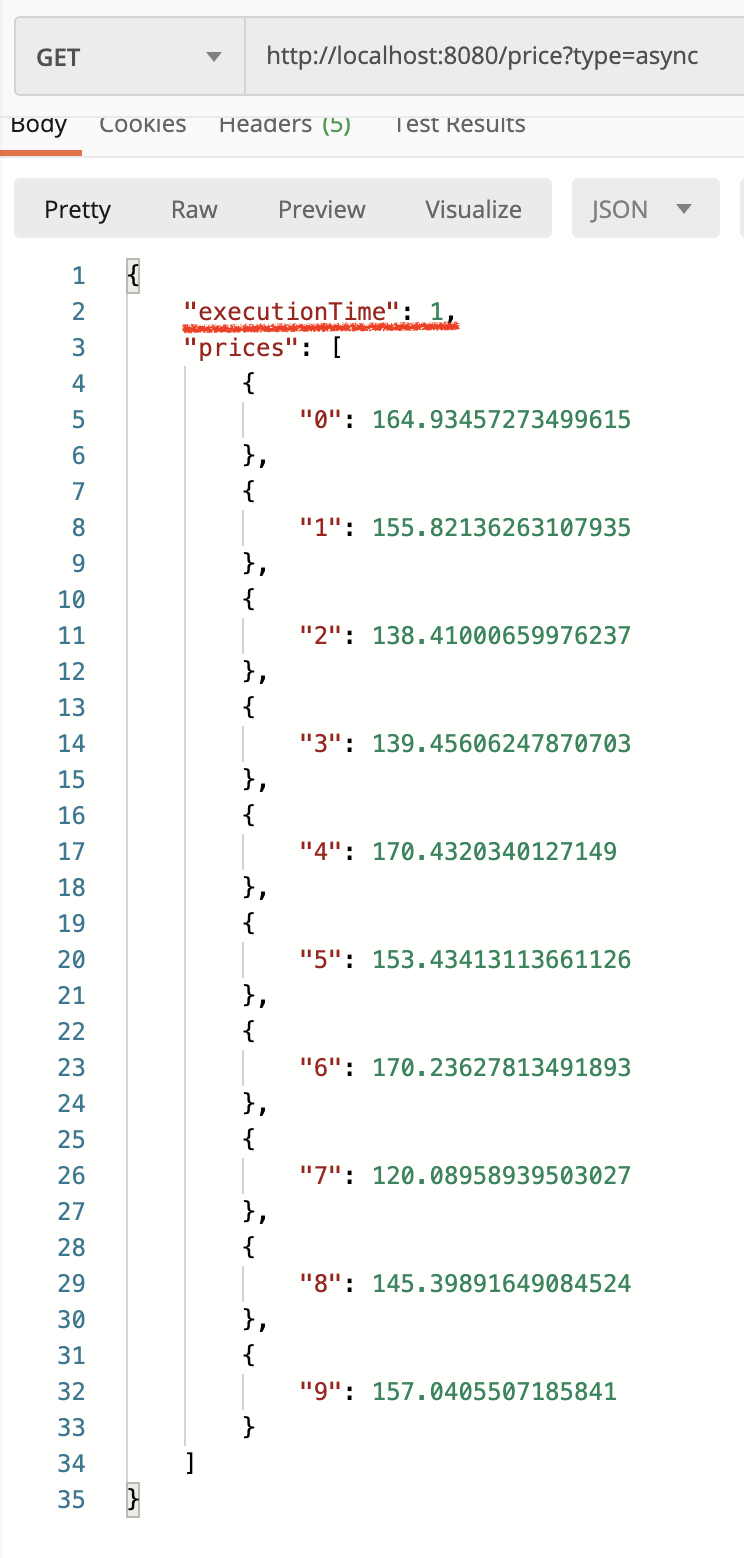 |
수행시간이 10초에서 1초로 감소한 것을 볼 수 있다. 10개의 멀티스레드로 작동했기 때문에 delay 시간인 1초만 걸린 것이다.
